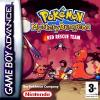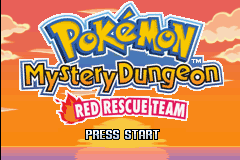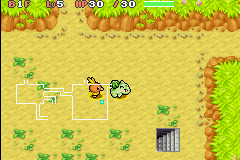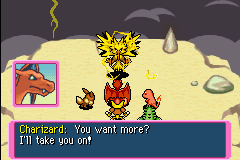Forum Links
Review: Pokémon Mystery Dungeon - Red Rescue Team.
An official staff review
An official staff review
Play Pokemon Mystery Dungeon - Red Rescue Team Online
Thread Information
Views
2,066
Replies
2
Rating
1
Status
OPEN
Thread
Creator
Creator
Redrunelord
09-02-11 09:14 PM
09-02-11 09:14 PM
Last
Post
Post
Redrunelord
09-02-11 09:18 PM
09-02-11 09:18 PM
System
9.4
Views: 757
Today: 1
Users: 1 unique
Today: 1
Users: 1 unique
Thread Actions
Order
Pokémon Mystery Dungeon - Red Rescue Team.
Game's Ratings
Overall
Graphics
Sound
Addictiveness
Depth
Story
Difficulty
Average User Score
9.4
8.7
8.5
9.1
9.2
9.3
6.6
09-02-11 09:14 PM
Redrunelord is Offline
| ID: 453584 | 1711 Words
| ID: 453584 | 1711 Words
Redrunelord
Level: 66





POSTS: 500/1049
POST EXP: 118329
LVL EXP: 2338245
CP: 2807.5
VIZ: 93325

POSTS: 500/1049
POST EXP: 118329
LVL EXP: 2338245
CP: 2807.5
VIZ: 93325

Likes: 1 Dislikes: 0
Psychology is a difficult field to master due to how different every human's mind can be, yet there is one irrefutable similarity between most if not all humans: they are creatures of habit. Once a human adapts to a certain environment they are comfortable with, they will stick with it as long as it is adequate. This is largely why franchises are so successful: the person, if they liked what they have seen before, they will likely stick with it unless there is a strong reason to leave it (like a sudden decrease in quality, an unwanted change in direction etc.). Pokémon is no different.
Perhaps that is a huge reason why Pokémon has succeeded; the main games are largely unchanged in their core formula. However, Nintendo have also created a plethora of spin-off games from the main franchise for their consoles, while keeping the main games exclusive to hand held format. For the most part, this remained exactly as such, but one of these spin-off series did find its way onto a handheld: The Mystery Dungeon spin series. However, only one game found its way onto a handheld older than the DS: Pokémon Mystery Dungeon - Red Rescue Team. The basic premise of Red Rescue Team is that the protagonist has turned into a Pokémon, but they do not know how that has happened. It is something you would see hauled straight out of an Alfred Hitchcock story, and it makes a good transition to a Pokémon game. To complicate matters for the protagonist, it turns out that there is a plethora of natural calamities going on around the time the protagonist appears, causing many Pokémon to get trapped in dungeons, and many more to go wild. Thus, at the encouragement of a Pokémon (of your selection) that finds the player, they create a team to go rescue Pokémon. The player would then proceed through a dungeon that is traversed in a turn-based manner, with every enemy moving a step or attacking after the player does so. This has some similarities to games like chess and dungeons and dragons mixed together, which was a popular “dungeon crawler” format. Visually, the game is about on par with the second generation of Pokémon, so if the player enjoyed those visuals, then these visuals should not be obstructive. They are repetitive at times, yes, but not obstructive. The perspective is an overhead bird’s eye view, with everything clearly defined with minimal confusion. The closest comparison would have to be a legend of Zelda game like “A Link to the Past” or “The Minish Cap” in how this bird’s eye view is executed. All of the models and sprites are exactly what they need to be: competent, but pretty. In the end, the graphics are subjective but someone who liked previous 2D Nintendo games should not mind these. The audio is in the same department: solid on a technical level, and pleasant. It uses the exact same styling as in the main games, but minor tweaks for the changed circumstances. It is by large subjective, and depending on the listener’s tastes, could easily be very annoying very quickly. However, the big question is not how pretty this game is, but how it runs. Overall, it runs exactly like virtually any other dungeon crawler with Pokémon elements thrown in. The player would travel around a town to handle their main affairs, including buying supplies, and the player’s home serves as the save point in which the player can choose to save after every dungeon completion. The actual dungeon crawling is standard fare, with the player’s Pokémon being their starting companion, allies they meet along the way, and themselves. That is right…as mention before; the player is an actual Pokémon. What Pokémon the player is depends solely on how they answer certain questions to a personality quiz when they start a new game. This is a very interesting way to determine how the player starts their game. If the player wants a certain Pokémon starting, then they can choose specific answers for specific Pokémon (good guides can be found across the Internet for this). This may prove obtrusive for certain players, but it is quick enough to do. Everything else that could be said is standard fare for dungeon crawlers: turn based system moving across a set grid of sorts defeating enemies along the way and gathering items, with the final goal being rescuing the Pokémon that, well, needs rescuing. The way the player would attack is using the exact moves that Pokémon would traditionally learn them (or with TMs), with items found across the dungeon, (the player could throw an item like a Battle Toad, or eat a berry to attack). That is the most basic premise as, like with a lot of “dungeon crawlers” there are a lot of game play elements that is nearly impossible to explain in brevity, but all of it is explained in the game, as a sort of tutorial. This is one of those dungeon crawlers that is very friendly to newcomers, unfamiliar with the genre. It would be a huge advantage to understand what Pokémon are, and have a solid knowledge of up to the third generation, but an even larger advantage to the genre. Indeed, the game could be very overwhelming to anyone unfamiliar with the formula of game play that Nintendo implemented. Nintendo’s efforts to assist the player going in are tremendous, but wearisome to players familiar with the game play. Nonetheless, it isn’t as bad as what Nintendo did for the first generation Pokémon game’s remakes. The game play is, by large, solid and well put together, if a bit confusing. It is one of those games that shouldn’t be described, but played, for the full explanation. The control, specifically in dungeons, is very awkward, particularly at first, but the player would likely grow used to it as time passes. The main awkwardness has to do with moving diagonally, or simply turning around but not moving forward. While intrusive, it should rarely prove a serious problem beyond actually rescuing the Pokémon. To rescue, the player has to face their “target” and press the A button, but their target never stays still and it is very difficult to turn to face them without moving, which often prompts the target to move as well. This can be argued as a legitimate means to add more difficulty, but it can be very annoying, particularly after a long, gruelling dungeon. The most notable thing about this game is not the game-play though, but the story. If there could be an Alfred Hitchcock of video game story lines, then this game is a possible contender. It is very careful not to give away too much too early, and slowly builds the story as the player slowly immerses themselves in it. Another Hitchcock trait that is common here is how everything has a double meaning, with a little thought. For instance, one thing that is evident early in the game is that there are other rescue teams (hence why there is a demand for the service your comrade waits for) earning money as they does so. In a way, it could be delved into as a reflection of how humans will react when there is a large supply or demand of something in a free market economy. Sometimes it is done for legitimately helping people, like the player’s comrade believes in, but there is also a huge element in what benefits there are in being a rescue team hero. In a way, the comrade can come off as naive when the player takes into account the grand scheme of things. Yes, it is very easy to assume that the story would be lacklustre, and only tacked on in order to say the game has something that is more cohesive than the Super Mario Brothers Super Show. While there are holes that pop up, particularly with how the knowledge that a rescue‘s necessity makes it to the protagonist’s attention most of the time, it is still very solid. That is the main term that should be used to describe this game: solid. There are few bugs, particularly with how the emulator doesn’t save in-game properly (though the save state feature overcomes this issue) but they aren’t intrusive. The game is far from flawless, however. It shares two major problems that, ironically, is shared by its first generation influences: repetition, and locked features. The repetition is derived mainly by that there is little to break the game play up, or divvy it up, especially early in the game. Like the main series, there are some distractions at times, but the style largely stays the same throughout the whole game: go down into the dungeon, traverse it, and try to rescue the Pokémon that more often than not will not stay still so they can be rescued. Depending on the player’s opinion of the genre, this could make or break the game in a heartbeat. The other major problem is that some Pokémon are 100% impossible to acquire as, like in the main series, they require being traded to be acquired (and as Vizzed do not have multiplayer currently installed, it is more than simply buying a second cartridge and hand held system). It’s a problem that occurs in the regular series, and it found a way to transcend itself into a spin off. The final verdict, however? If the player enjoys Pokémon, strategy games, role playing games, or simple dungeon crawlers, then yes this is a highly recommended game. If the player is more of a faster paced, fast means to an end type of gamer...then maybe stay away. Between solid visuals, solid game play, and a well constructed story, this is doubtlessly a strong game in the Pokémon franchise. A major advantage this game has is also just the pure and simple diversity there is to possible strategies, with various starters and various starting companions, as well as who is acquired. Not a difficult game with some practice and training, but depending how it is played it should have sufficient difficulty to enrapture the player. Humans are creatures of habits, and should one look at this game...they will likely stick with it. Perhaps that is a huge reason why Pokémon has succeeded; the main games are largely unchanged in their core formula. However, Nintendo have also created a plethora of spin-off games from the main franchise for their consoles, while keeping the main games exclusive to hand held format. For the most part, this remained exactly as such, but one of these spin-off series did find its way onto a handheld: The Mystery Dungeon spin series. However, only one game found its way onto a handheld older than the DS: Pokémon Mystery Dungeon - Red Rescue Team. The basic premise of Red Rescue Team is that the protagonist has turned into a Pokémon, but they do not know how that has happened. It is something you would see hauled straight out of an Alfred Hitchcock story, and it makes a good transition to a Pokémon game. To complicate matters for the protagonist, it turns out that there is a plethora of natural calamities going on around the time the protagonist appears, causing many Pokémon to get trapped in dungeons, and many more to go wild. Thus, at the encouragement of a Pokémon (of your selection) that finds the player, they create a team to go rescue Pokémon. The player would then proceed through a dungeon that is traversed in a turn-based manner, with every enemy moving a step or attacking after the player does so. This has some similarities to games like chess and dungeons and dragons mixed together, which was a popular “dungeon crawler” format. Visually, the game is about on par with the second generation of Pokémon, so if the player enjoyed those visuals, then these visuals should not be obstructive. They are repetitive at times, yes, but not obstructive. The perspective is an overhead bird’s eye view, with everything clearly defined with minimal confusion. The closest comparison would have to be a legend of Zelda game like “A Link to the Past” or “The Minish Cap” in how this bird’s eye view is executed. All of the models and sprites are exactly what they need to be: competent, but pretty. In the end, the graphics are subjective but someone who liked previous 2D Nintendo games should not mind these. The audio is in the same department: solid on a technical level, and pleasant. It uses the exact same styling as in the main games, but minor tweaks for the changed circumstances. It is by large subjective, and depending on the listener’s tastes, could easily be very annoying very quickly. However, the big question is not how pretty this game is, but how it runs. Overall, it runs exactly like virtually any other dungeon crawler with Pokémon elements thrown in. The player would travel around a town to handle their main affairs, including buying supplies, and the player’s home serves as the save point in which the player can choose to save after every dungeon completion. The actual dungeon crawling is standard fare, with the player’s Pokémon being their starting companion, allies they meet along the way, and themselves. That is right…as mention before; the player is an actual Pokémon. What Pokémon the player is depends solely on how they answer certain questions to a personality quiz when they start a new game. This is a very interesting way to determine how the player starts their game. If the player wants a certain Pokémon starting, then they can choose specific answers for specific Pokémon (good guides can be found across the Internet for this). This may prove obtrusive for certain players, but it is quick enough to do. Everything else that could be said is standard fare for dungeon crawlers: turn based system moving across a set grid of sorts defeating enemies along the way and gathering items, with the final goal being rescuing the Pokémon that, well, needs rescuing. The way the player would attack is using the exact moves that Pokémon would traditionally learn them (or with TMs), with items found across the dungeon, (the player could throw an item like a Battle Toad, or eat a berry to attack). That is the most basic premise as, like with a lot of “dungeon crawlers” there are a lot of game play elements that is nearly impossible to explain in brevity, but all of it is explained in the game, as a sort of tutorial. This is one of those dungeon crawlers that is very friendly to newcomers, unfamiliar with the genre. It would be a huge advantage to understand what Pokémon are, and have a solid knowledge of up to the third generation, but an even larger advantage to the genre. Indeed, the game could be very overwhelming to anyone unfamiliar with the formula of game play that Nintendo implemented. Nintendo’s efforts to assist the player going in are tremendous, but wearisome to players familiar with the game play. Nonetheless, it isn’t as bad as what Nintendo did for the first generation Pokémon game’s remakes. The game play is, by large, solid and well put together, if a bit confusing. It is one of those games that shouldn’t be described, but played, for the full explanation. The control, specifically in dungeons, is very awkward, particularly at first, but the player would likely grow used to it as time passes. The main awkwardness has to do with moving diagonally, or simply turning around but not moving forward. While intrusive, it should rarely prove a serious problem beyond actually rescuing the Pokémon. To rescue, the player has to face their “target” and press the A button, but their target never stays still and it is very difficult to turn to face them without moving, which often prompts the target to move as well. This can be argued as a legitimate means to add more difficulty, but it can be very annoying, particularly after a long, gruelling dungeon. The most notable thing about this game is not the game-play though, but the story. If there could be an Alfred Hitchcock of video game story lines, then this game is a possible contender. It is very careful not to give away too much too early, and slowly builds the story as the player slowly immerses themselves in it. Another Hitchcock trait that is common here is how everything has a double meaning, with a little thought. For instance, one thing that is evident early in the game is that there are other rescue teams (hence why there is a demand for the service your comrade waits for) earning money as they does so. In a way, it could be delved into as a reflection of how humans will react when there is a large supply or demand of something in a free market economy. Sometimes it is done for legitimately helping people, like the player’s comrade believes in, but there is also a huge element in what benefits there are in being a rescue team hero. In a way, the comrade can come off as naive when the player takes into account the grand scheme of things. Yes, it is very easy to assume that the story would be lacklustre, and only tacked on in order to say the game has something that is more cohesive than the Super Mario Brothers Super Show. While there are holes that pop up, particularly with how the knowledge that a rescue‘s necessity makes it to the protagonist’s attention most of the time, it is still very solid. That is the main term that should be used to describe this game: solid. There are few bugs, particularly with how the emulator doesn’t save in-game properly (though the save state feature overcomes this issue) but they aren’t intrusive. The game is far from flawless, however. It shares two major problems that, ironically, is shared by its first generation influences: repetition, and locked features. The repetition is derived mainly by that there is little to break the game play up, or divvy it up, especially early in the game. Like the main series, there are some distractions at times, but the style largely stays the same throughout the whole game: go down into the dungeon, traverse it, and try to rescue the Pokémon that more often than not will not stay still so they can be rescued. Depending on the player’s opinion of the genre, this could make or break the game in a heartbeat. The other major problem is that some Pokémon are 100% impossible to acquire as, like in the main series, they require being traded to be acquired (and as Vizzed do not have multiplayer currently installed, it is more than simply buying a second cartridge and hand held system). It’s a problem that occurs in the regular series, and it found a way to transcend itself into a spin off. The final verdict, however? If the player enjoys Pokémon, strategy games, role playing games, or simple dungeon crawlers, then yes this is a highly recommended game. If the player is more of a faster paced, fast means to an end type of gamer...then maybe stay away. Between solid visuals, solid game play, and a well constructed story, this is doubtlessly a strong game in the Pokémon franchise. A major advantage this game has is also just the pure and simple diversity there is to possible strategies, with various starters and various starting companions, as well as who is acquired. Not a difficult game with some practice and training, but depending how it is played it should have sufficient difficulty to enrapture the player. Humans are creatures of habits, and should one look at this game...they will likely stick with it. |
Vizzed Elite
Affected by 'Laziness Syndrome'
Registered: 05-01-11
Last Post: 4196 days
Last Active: 2358 days
| A Lone Samurai |
Affected by 'Laziness Syndrome'
Registered: 05-01-11
Last Post: 4196 days
Last Active: 2358 days
Post Rating: 1 Liked By: tgags123,
09-02-11 09:16 PM
 mike345 is Offline
| ID: 453585 | 17 Words
mike345 is Offline
| ID: 453585 | 17 Words
 mike345 is Offline
mike345 is Offline
| ID: 453585 | 17 Words
mike345
Level: 121




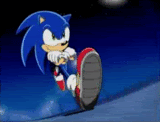
POSTS: 1614/4276
POST EXP: 71462
LVL EXP: 19709298
CP: 399.3
VIZ: 118166

POSTS: 1614/4276
POST EXP: 71462
LVL EXP: 19709298
CP: 399.3
VIZ: 118166

Likes: 0 Dislikes: 0
Wow that is a great review,Pokemon Mystery red Dungeon-Red Rescue Team is on of my favorite games. |
Trusted Member
Affected by 'Laziness Syndrome'
Registered: 09-11-10
Location: Waterford
Last Post: 3018 days
Last Active: 98 days
| Placed 2nd in August 2011 VCS |
Affected by 'Laziness Syndrome'
Registered: 09-11-10
Location: Waterford
Last Post: 3018 days
Last Active: 98 days
09-02-11 09:18 PM
Redrunelord is Offline
| ID: 453589 | 48 Words
| ID: 453589 | 48 Words
Redrunelord
Level: 66





POSTS: 502/1049
POST EXP: 118329
LVL EXP: 2338245
CP: 2807.5
VIZ: 93325

POSTS: 502/1049
POST EXP: 118329
LVL EXP: 2338245
CP: 2807.5
VIZ: 93325

Likes: 0 Dislikes: 0
mike345 : That was a veyr fast reply, lol. I only got that review up a few minutes ago X D
I was dubious going in, as I expected a cheap clone but hey...its a pretty good game. I have full intentions of hunting down a cartridge somehow. I was dubious going in, as I expected a cheap clone but hey...its a pretty good game. I have full intentions of hunting down a cartridge somehow. |
Vizzed Elite
Affected by 'Laziness Syndrome'
Registered: 05-01-11
Last Post: 4196 days
Last Active: 2358 days
| A Lone Samurai |
Affected by 'Laziness Syndrome'
Registered: 05-01-11
Last Post: 4196 days
Last Active: 2358 days


 User Notice
User Notice 